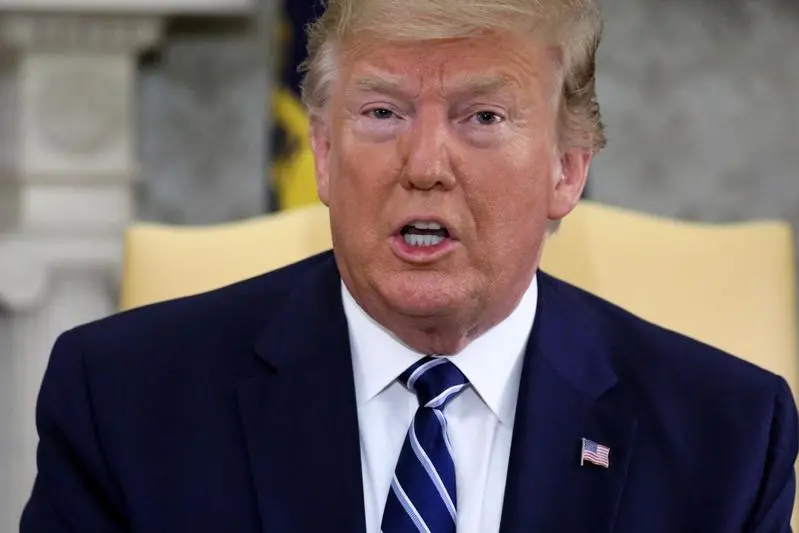PHOTO
NEW YORK - Donald Trump launched his re-election campaign this week with a populist appeal to America’s forgotten men and women. Yet as well as already being their president, he’s a businessman whose signature first-term legislation was tax cuts – mostly for big companies. Such actions speak louder than Trump’s words in the 500-day runup to the 2020 election.
U.S. businesses have got the better of politicians of late. According to the Commerce Department’s Bureau of Economic Analysis, the share of pre-tax profit that companies hand over to Uncle Sam has trended steadily lower over the last half-century. The extra leg downward from the Republicans’ tax cuts, which kicked in last year, has reduced the take to barely more than 10% from nearly 40% in 1969. And this is at a time when corporate profit remains historically high as a percentage of national income.
BEA data show that the 35% rate in force until 2017 was never collected, and the new 21% headline figure is being cut in half by a forest of tax breaks. At least 60 of America’s largest companies – among them Amazon.com, Delta Air Lines and Chevron – legally paid no federal tax, or even received refunds, on a combined $79 billion of pre-tax profit in 2018, according to the Institute on Taxation and Economic Policy.
This week, Trump also awarded the Presidential Medal of Freedom to Art Laffer. The economist’s eponymous curve suggests tax cuts can pay for themselves by boosting economic growth, an idea contradicted by plenty of evidence including today’s expanding federal deficits. The choice may reveal a real passion on Trump’s part: after all, his last recipient of America’s highest civilian honor was golfer Tiger Woods.
For all the rhetoric and executive action on trade, immigration and the like, easing the corporate load has been a Trump priority, whether through tax cuts or reduced regulation. That’s perhaps not surprising for a president who retains close links to his business interests, and for a system that presents few barriers to the deployment of corporate cash in elections.
The trouble is that cutting taxes on one constituency usually transfers a burden to another – in some cases those same forgotten men and women. People have their reasons to vote for Trump, but one thing should be clear: A plutocrat is up for re-election.
On Twitter https://twitter.com/richardbeales1
CONTEXT NEWS
- U.S. President Donald Trump formally launched his 2020 re-election campaign on June 18. At a rally in Orlando, Florida, Trump made clear he would run as an outsider, just as he did in 2016.
- He revisited campaign themes from four years ago, decrying illegal immigration, the news media and his 2016 Democratic opponent, Hillary Clinton.
- Trump on June 19 awarded the Presidential Medal of Freedom, the country's highest civilian honor, to economist Arthur Laffer. Laffer is known for the "Laffer Curve," a theory that he used to argue that cutting tax rates could actually increase government revenue by spurring economic growth.
- Laffer helped develop the package of tax cuts passed by a Republican-controlled Congress in 2017 that came into effect in 2018. Among other changes, the headline rate of tax on company profit was reduced to 21% from 35%.
- At least 60 Fortune 500 companies legally paid no federal income taxes in 2018 on a collective $79 billion in pre-tax profit, the Institute on Taxation and Economic Policy said in a report released on April 11. The businesses included Amazon.com, Delta Air Lines and Chevron.
- For previous columns by the author, Reuters customers can click on BEALES/
- SIGN UP FOR BREAKINGVIEWS EMAIL ALERTS http://bit.ly/BVsubscribe
(Editing by Tom Buerkle and Amanda Gomez) ((richard.beales@thomsonreuters.com; Reuters Messaging: richard.beales.thomsonreuters.com@reuters.net))





















